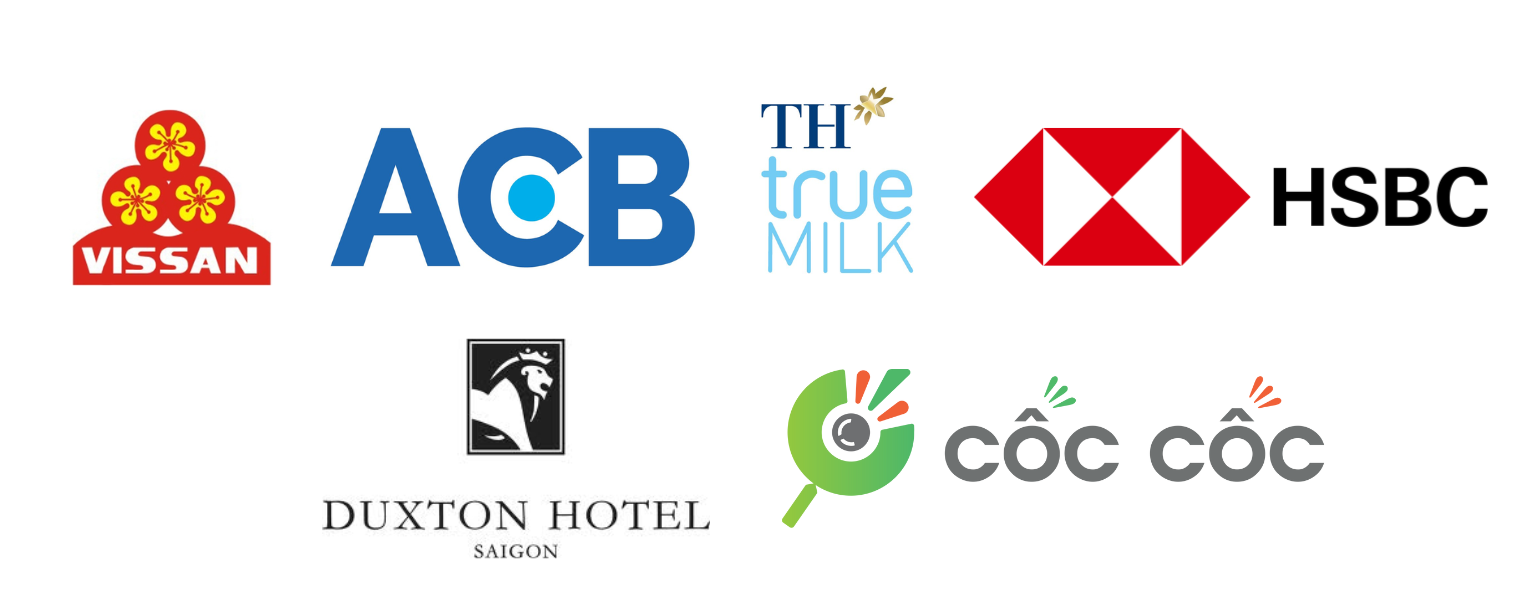1. PROGRAMME CONTENT
1.2 DURATION
The programme lasts for 3 years (excluding 1 foundational year), with 2 semesters each year. Instruction is conducted in English.
> The programme focuses on helping students position themselves in the dynamic, creative, and competitive marketing industry, guiding their career paths through trend-focused modules such as Integrated Marketing Communications.
> With an advantage in assessing creativity, students can enhance their knowledge of Digital Marketing through real-life scenarios.
> The programme also provides opportunities for students to participate in and experience large-scale projects such as the international X-culture competition.
> Students will have the ability to research and keep up with emerging trends both domestically and internationally. The programme focuses on areas such as sustainable marketing, deep consumer understanding, digital transformation, marketing automation, creativity, interactive marketing, and approaches to marketing communications that reflect and engage a more diverse range of consumers.
1.3 EDUCATION PROGRAMME
| Year 0 | Year 1 | Year 2 | Year 3 |
| IYZ | Marketing | Marketing | Marketing |
| English for Academic Purposes 1 | Fundamentals of Organizations and Markets in a Global Context | Brand Management | Marketing Strategy and Analytics |
| English for Academic Purposes 2 | Principles of Marketing | Customer Insight: Consumer Behaviour and Research | Engagement Marketing: Communities, Content and Creativity |
| Academic and Study Skills | Marketing Decisions | Integrated Marketing Communications | Choose 1 of the 2 following subjects: |
| Maths Study Skills: Quantitative Methods | Marketing in Action: Social, Environmental and Digital Impact | Contemporary Issues in Marketing | Critical Perspectives in Marketing |
| The Context of Business | Marketing Innovation | ||
| Choose 1 of the 2 following subjects: | |||
| Marketing Dissertation | |||
| Brand Portfolio |
2. Course Content
2.1. Year 1
2.1.1. Course 1: Fundamentals of Organizations and Markets in a Global Context
The purpose of this course is to introduce the field of business and provide a solid understanding of corporate structure, how organizations operate in a global context, internal functions of businesses, and their interactions. Throughout the course, we will discuss topics such as types of businesses, key functions of businesses, market concepts, global economic environment, organizational structure, and basic financial management. Students will also explore the influence of culture on organizational principles and behaviors.
2.1.2. Course 2: Principles of Marketing
This course offers students a comprehensive introduction to the broad field of marketing and is the second important knowledge block deeply embedding fundamental skills and applicative abilities for advanced learning. The goal is to help students understand the theoretical scope of marketing through real-world application illustrations. Special emphasis is placed on contemporary challenges marketers face, such as e-marketing, ethics, and globalization.
2.1.3. Course 3: Marketing Decisions
Students will develop awareness of basic concepts of information and decision-making, which are crucial parts of marketing. Students will use these techniques to solve problems and make marketing decisions. The course, based on a simulated market (computer-based simulation game), will allow students to explore and experiment with various marketing tools to achieve specific business performance.
2.1.4. Course 4: Marketing in Action: Social, Environmental, and Digital Impact
This course explores some key drivers of societal and technological change profoundly impacting the marketing landscape. The overarching theme is change in the modern world, how it affects society, and how marketers must adjust their methods to succeed in a rapidly changing consumer environment.
Students will be introduced to the principles of Sustainable Marketing, aimed at promoting sustainable products and services that “meet customer needs and significantly improve social and environmental performance throughout the product life cycle”, while adding value for customers and achieving company objectives. In this course, students will learn how sustainable principles can be integrated into marketing activities and strategies; to address opportunities and challenges arising from social, economic, and environmental changes – such as climate change.
2.2. Year 2
2.2.1. Course 1: Brand Management
This course introduces students to the historical development, complexity of management, and modern advancements in the field of branding. It provides students with an in-depth understanding of contemporary brand theory and practice, including strategic brand building, positioning, and management. Students also examine the various roles that brands play in our daily lives and why the sustainable success of a brand often relies on creating, supporting, and cherishing consumer-brand relationships.
Ultimately, the course offers students a theoretical and practical insight into the creative process of brand creation, design, development, and management. It emphasizes the idea that a brand should not merely be seen as a name, symbol, and/or logo, but rather as compelling stories. This means that successful brand managers are primarily good storytellers. As building and managing sustainable brands are crucial, actively engaging and successfully completing this inspiring course will enhance students’ career prospects, whether in specific brand management fields or in broader advertising, marketing, and marketing management domains.
2.2.2. Course 2: Brand Management
Understanding customers is crucial for businesses; hence, consumer understanding is a significant competitive advantage for companies aiming to differentiate and target specific market segments. Understanding customers involves a deep understanding of their motivations, behaviors, preferences, and even unmet needs, to continually provide value-added services leading to strong loyalty and long-term relationships.
Students will gain solid knowledge of how to gather customer information through marketing research and data analysis, and how to use this information to support new product development, enhance marketing communication, and improve the overall customer experience across the entire shopping journey – online and offline. Students will also learn how to use information to create sustainable products and services, build meaningful and useful business messages, and propose possible pricing strategies.
2.2.3. Course 3: Integrated Marketing Communications
Marketing communications are used to interact with audiences and are key to the success of any campaign. In this course, students will learn how to apply theories and concepts of marketing communications to a business. Building on marketing information, students will create an integrated marketing campaign to enhance the customer experience and meet identified business needs. (Linked with CIM and presentation)
2.2.4. Course 4: Contemporary Issues in Marketing
This course combines elements of traditional research methodology and draws inspiration from peers engaged in research and innovation in various specialized areas including (but not limited to) Consumer Culture Theory, Dominant Marketing, Customer Interaction, Digital Marketing, Marketing Innovation, Consumer Sociology, and Consumption Transformation Research. Coordinated with the Customer Insight course: Behavior and consumption research, these two blocks provide an important foundation for students to continue their independent research in their final year.
Students will first gain a deep understanding of the research process and the conceptual differences between qualitative and quantitative research, as well as the main methods associated with each approach. Students will be introduced to peers engaged in research through a series of seminars led by professors at DMU, including research projects at the forefront of proposing new advances in theory, policy, and practice.
2.3. Year 3
2.3.1. Course 1: Marketing Strategy and Analytics
This course is designed for final year students likely to pursue a career in marketing management. Strategic in nature, it not only synthesizes and develops knowledge from various components in their curriculum but also encourages the development of a critical perspective when discussing strategies and actions of different types of businesses. Additionally, it employs a theoretical approach to marketing management situations drawn from real industry contexts and simulates the types of marketing reports required by both small and large companies.
2.3.2. Course 2: Engagement Marketing: Communities, Content, and Creativity
This course examines the key determinants of multichannel interactive marketing before moving on to explore the core principles of direct marketing and customer relationship management (CRM), as well as how to apply them across a range of marketing organizations and contexts. Specifically, the module focuses on the central role of customer information and how databases are built and utilized to identify, attract, and retain profitable consumer groups. Students will be introduced to interactive marketing tools and familiarize themselves with a variety of interactive platforms. The course encourages students to evaluate and contribute to the debate on contemporary digital marketing and social media communication issues. For instance, how organizations should respond to ethical issues like data privacy, bias, and transparency when crafting social media marketing campaigns.
Organizations, regardless of size, are leveraging advances in computer technology and communication to ‘connect’ with customers and consumers. Databases capable of storing large amounts of information about current and potential customers can be used for highly targeted advertising campaigns in both business-to-business and consumer markets.
2.3.3. Course 3: Choose ONE of the following subjects: Critical Perspectives in Marketing OR Critical Perspectives in Marketing
Marketing innovation involves implementing a new marketing approach related to significant changes in product or packaging design, product positioning, product advertising, or pricing. We are witnessing unprecedented growth in marketing innovation being driven across all industry sectors by technological advancements, changing consumer expectations, and global demands to enhance marketing sustainability.
Today’s business and marketing professionals need to understand how technology and innovation must respond to the needs of new products and/or services. This course combines marketing and innovation fields, providing detailed insight into the creative process of designing, developing, and managing new product and service innovations, to explore innovation related to both current products and services and new product development processes. This advanced topic will enhance students’ skills, from strategic and creative innovation leadership and management to commercialization and beyond. They will face challenging experiences by balancing theory and practice through contemporary case study evaluations.
2.3.4. Course 4: Choose 1 of the following subjects: Marketing Dissertation or Brand Portfolio
The dissertation is designed to provide students with an opportunity to research a topic of personal interest. Often, students expand on a field that has attracted them from previous marketing courses, linking research to issues they have been curious about from work placement experiences, or exploring a topic not covered in a formal course. Under the guidance of several lectures and meetings with assigned dissertation supervisors, this dissertation will demonstrate the application of academic theory to real marketing situations.
This course requires students to work independently and set their own goals to research a topic they find intriguing and personally significant. Recognizing the scope of activities largely self-initiated by students in this course, it will span over an extended period, running parallel to the previous coursework blocks.
3. CAREER OPPORTUNITIES
Professional human resource training programme for domestic and international business. Graduates will be able to participate in activities in the field of Marketing such as:
- Brand Manager
- Social Media Manager
- Event Marketing Specialist
- Email Marketing Specialist
- Marketing Automation Specialist
- Creative Director
- Affiliate Marketing Manager
- Digital Advertising Specialist
- Public Relations Specialist
- Market Research Analyst
- Customer Relationship Manager
4. Partners

5. Admission information
Click here to see more.
Explore other Hoa Sen – De Montfort program majors:
__________________
LIÊN HỆ TƯ VẤN: Chương trình Hoa Sen – De Montfort – Viện Đào tạo Quốc tế
Địa chỉ: Phòng 1007, Lầu 10, 08 Nguyễn Văn Tráng, P. Bến Thành, Quận 1, TP. Hồ Chí Minh Điện thoại: 028 7309 1991 (Số nội bộ: 4792)
Hotline: 0888 275 276
Email: demontfort@hoasen.edu.vn
Website: www.hoasen.edu.vn/demontfort/


